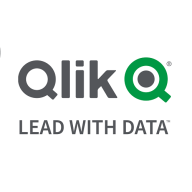

Find out in this report how the two Cloud Data Integration solutions compare in terms of features, pricing, service and support, easy of deployment, and ROI.
I conducted a cost comparison with the AWS service provider, and this option is much cheaper than the Kinesis service offered by AWS.
Customers have seen ROI with Qlik Replicate because they get their data for analysis faster, enabling quicker decision-making compared to traditional data sourcing methods.
Even priority tickets, which should be resolved in minutes, can take days.
Support response times could be improved as there are sometimes delays in receiving replies to support cases.
The system could be scaled to include more sources and functions.
Whenever more resources are needed, they become available automatically without any human interference.
Vertically, scalability is fine, however, I have not expanded horizontally with the product yet.
We provide support to our clients, and the minimum calls I receive are for webMethods.io; it's very stable.
There are some issues like the tool hanging or the need for additional jars when exposing web services.
It is a core-based licensing, which, especially in the banking industry, results in the system capacity being utilized up to a maximum of 60%.
Qlik Replicate could be improved in the next release by incorporating more monitoring options to monitor the logs.
webMethods.io lacks advanced monitoring and analytics capabilities, so my customers need to use something additional.
A special discount of at least 50% for old customers would allow us to expand our services and request more resources.
For Qlik Replicate, the setup cost includes the requirement of a server, which represents the hardware cost that must be covered.
Licensing is calculated based on the machine's total capacity rather than actual usage.
Regarding the pricing and licensing of webMethods.io, I don't think it's expensive when compared with the features.
The most valuable feature of Qlik Replicate is their change data capture feature.
Data retrieved from the system can be pushed to multiple places, supporting various divisions such as marketing, loans, and others.
It facilitates the exposure of around 235 services through our platform to feed various government entities across the entire country.
I believe data transformation is exceptional in webMethods.io because they have an online database that can cache the database online.


| Company Size | Count |
|---|---|
| Small Business | 9 |
| Large Enterprise | 10 |
| Company Size | Count |
|---|---|
| Small Business | 23 |
| Midsize Enterprise | 11 |
| Large Enterprise | 63 |
Qlik Replicate is a data replication solution for replicating data from one source database to another for business intelligence software. It offers data manipulation and transformations, replication without impacting source databases, and ease of use without needing ETL. The solution is stable and user-friendly, with detailed logging and support.
Qlik Replicate has improved the organization by allowing each team to replicate their data into a single-source data location. The most important feature of Qlik Replicate is its ability to replicate and update records without needing a programmer.
webMethods.io Integration is a powerful integration platform as a service (iPaaS) that provides a combination of capabilities offered by ESBs, data integration systems, API management tools, and B2B gateways.
We monitor all Cloud Data Integration reviews to prevent fraudulent reviews and keep review quality high. We do not post reviews by company employees or direct competitors. We validate each review for authenticity via cross-reference with LinkedIn, and personal follow-up with the reviewer when necessary.